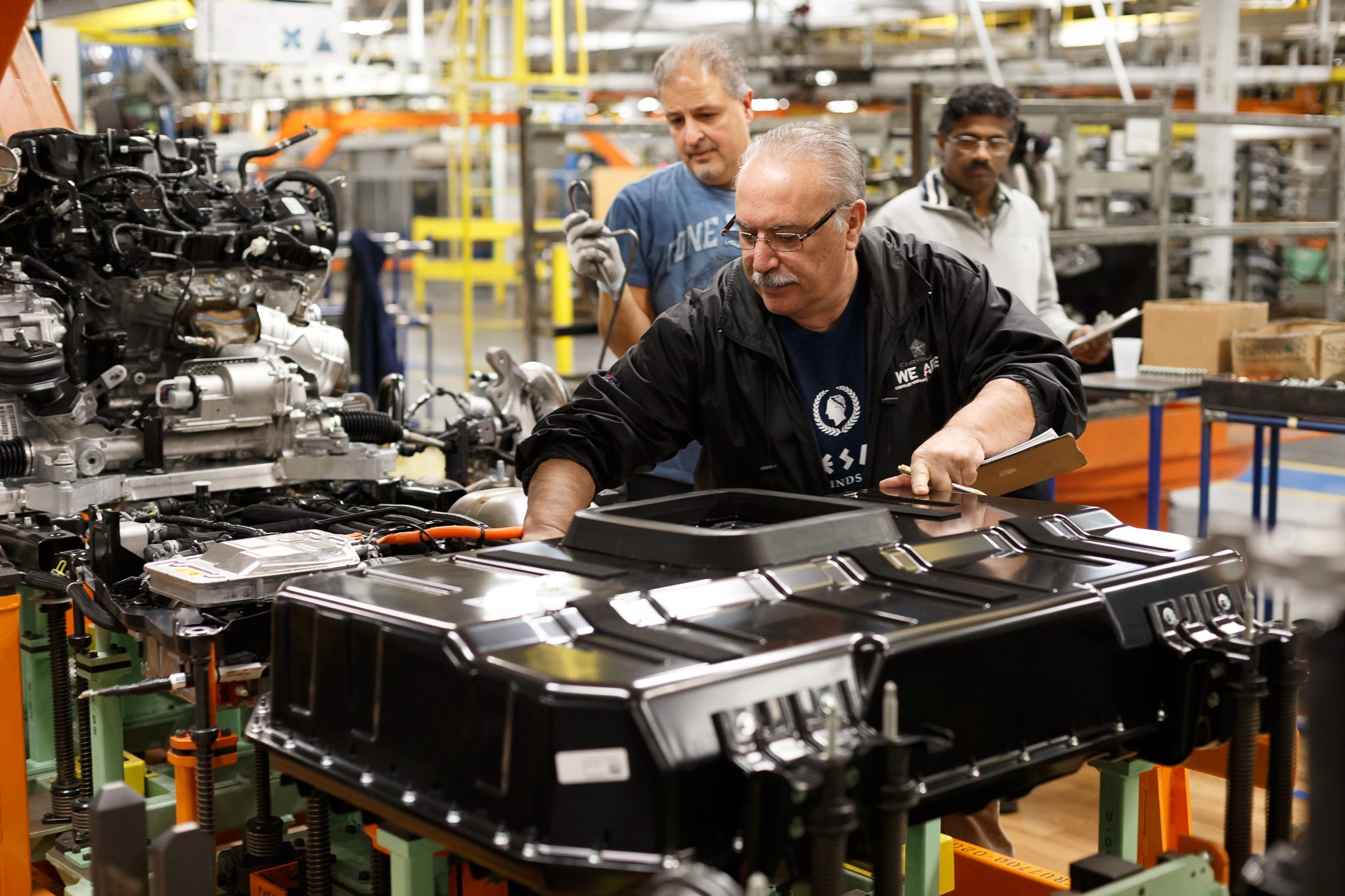Stellantis: Electric vehicle coming to Windsor plant will get up to 500 miles per charge

Chrysler parent Stellantis plans to build an electric vehicle capable of up to 500 miles of range on a charge at its assembly plant in Windsor, Ontario, and the automaker intends to stop production of three popular passenger cars at its plant in Brampton, Ontario, in 2024.
The twin announcements Friday highlight the changes coming as the automaker moves to implement its electrification plans in the years ahead. Stellantis, which owns the Jeep, Ram, Chrysler, Dodge, Fiat, Alfa Romeo and Maserati brands, has said it will invest $35 billion ($45 billion Canadian) through 2025 in electrification and related software around the world. It recently announced plans to build electric vehicle batteries at plants in Windsor, Ontario, and Kokomo, Indiana.
Whether production of the Dodge Challenger, Dodge Charger and Chrysler 300 as gas-powered cars might be moved elsewhere or eliminated wasn’t made clear in a news release Friday, but the changes are tied to a previously announced retooling to accommodate new product plans at Brampton, set to start in 2024. A product announcement for Brampton, which is outside Toronto, is to be made later.
Christine Feuell, the CEO of the Chrysler brand, addressed the future of the Chrysler 300 sedan in January as she was discussing the reimagining of the Chrysler brand, telling the Free Press that “in the event that we come out with a new vehicle that replaces the 300 with a fully electrified platform … some of those legacy 300 customers may not find that appealing, but we anticipate attracting new customers to the brand, and that’s really what this is about.”
As part of its EV transformation, Chrysler in January unveiled the Chrysler Airflow Concept, an electric vehicle that some have speculated could become a competitor to Ford’s Mustang Mach-E. The company has not confirmed production plans for the Airflow, however.
The changes at the Windsor and Brampton assembly plants were first announced in May. The company said it would invest $2.8 billion ($3.6 billion Canadian) in the plants, supported by hundreds of millions of dollars from the federal and provincial governments. Retooling of the Windsor Assembly Plant is scheduled to start next year.
More: One-time tourist hotspot to supply key electric car battery ingredient for Stellantis
More: Stellantis, Samsung to invest $2.5B, create 1,400 jobs at Indiana EV battery plant
More: Stellantis makes leadership change after unflattering report on supplier relations
“There has been a lot of speculation, and while we’re not prepared to discuss any product details today, we’re happy to confirm that Windsor will produce vehicles on our new STLA Large platform,” Mark Stewart, chief operating officer for Stellantis North America, said in a news release. “These announcements represent key pieces of our Dare Forward strategy to provide safe, clean and affordable mobility solutions for our customers long into the future.”
Dare Forward 2030 is the name of the company’s business plan for the rest of the decade. The STLA Large platform is one of four platforms the automaker has announced for its electric vehicles. The others are STLA Small, Medium and Frame, with ranges from up to 300 miles to up to 500 miles per charge, Stellantis has said. Vehicles on the STLA Large and STLA Frame platforms are to provide up to 500 miles per charge, the company has said.
At Windsor, where the Chrysler Pacifica minivan is built, the plant will be updated to support battery electric vehicle capability for multiple models, with “maximum flexibility to adjust production volumes as needed to meet changing market demand of the next decade,” the company said.
Brampton Assembly Plant will produce a new, “flexible architecture to support the company’s electrification plans,” the release said.
In other Stellantis news: The company is set to have a plea hearing June 3 at U.S. District Court in Detroit related to the criminal portion of an alleged diesel emissions cheating case involving about 100,000 2014-16 EcoDiesel Ram 1500 pickups and Jeep Grand Cherokees in the United States. In court filings June 2, the company, which has declined comment, was accused of conspiracy to defraud the United States to violate the Clean Air Act and to commit wire fraud for allegedly cheating emissions testing that allowed the vehicles to emit more pollutants than they were supposed to when owners were driving them on the roads.
Contact Eric D. Lawrence: elawrence@freepress.com. Follow him on Twitter: @_ericdlawrence. Become a subscriber.

